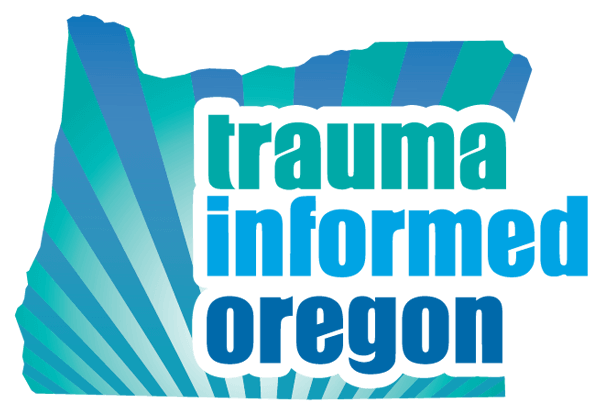Core Training Curriculum
 Training Components, Skills, and Learning Objectives for Foundational Trainings in Trauma Informed Care
Training Components, Skills, and Learning Objectives for Foundational Trainings in Trauma Informed Care
Trauma informed care is broad and reflects many different strategies; however, foundational information about the impact of trauma and TIC helps create a common language and understanding. To support development and sustainability of TIC efforts, training that addresses the following components is recommended.
One step on the Road Map to Trauma Informed Care is Foundational Knowledge that provides foundational readiness toward the implementation of trauma informed care (TIC). Foundational knowledge ensures that all staff have access to basic knowledge about the nature and impact of trauma and principles of TIC. Furthermore, as an agency uses the Standards of Practice to define benchmarks for planning and monitoring the progress of TIC, training and workforce development become key components. Formal training is one way to achieve these goals. The key training components, skills, and learning objectives that a foundational training should include are outlined in the following text and were developed through years of collaboration with communities and organizations around the state of Oregon.
A trauma-informed approach invites individuals and organizations to realize the impact of trauma and its paths to recovery, recognize the signs and symptoms of trauma, respond by utilizing this knowledge in policies, procedures and practices, and resist re-traumatization. The prevalence of trauma and toxic stress in our communities and places of work is significant, and through TIC we have an opportunity to influence workforce wellness, service user engagement, and overall organizational culture.
Everyone in an organization has an important role in the implementation of TIC principles, therefore it is critical that everyone has access to foundational training about TIC. Training content should be delivered in an inclusive way, including but not limited to being culturally and linguistically sensitive.
Download a printable version of the Foundations of Trauma Informed Care: Key Training Topics, Skills, and Learning Objectives. There's also a printable version of the Training Components.
 What is Trauma?
What is Trauma?
Training Components
- Three E’s (SAMHSA)
- Individual and collective
- Systemic and historical
- Different types of stress
- Prevalence
Skill
- Broaden one’s lens of what is meant by trauma
Learning Objectives
- Participants will be able to provide a definition of trauma that includes systemic oppression, historical and collective trauma, and toxic stress.
- Participants will understand the prevalence of trauma and adversity nationally, locally, and within specific populations.
 What is Trauma Informed Care?
What is Trauma Informed Care?
Training Components
- Four R’s (SAMHSA)
- The difference between trauma specific and trauma informed
- Six Principles of TIC (SAMHSA)
Skill
- Articulate why trauma informed care is important
Learning Objectives
- Participants will be able to understand the term “trauma informed care,” and its relevance in organizational policies and procedures, as well as individual practices.
- Participants will be able to distinguish between trauma specific and trauma informed.
- Participants will gain a familiarity with the Six Principles of TIC.
- Participants will be able to explain why TIC is important in their industry and particular job.
 The Science of Trauma
The Science of Trauma
Training Components
- NEAR (Neurobiology, Epigenetics, ACEs, and Resilience)
- Toxic stress and the functions of the brain
- Organizational change
Skill
- Understand the possible “why” behind an individual’s ways of thinking, behaving, and relating
Learning Objectives
- Participants will be able to identify ways of understanding possible reasons behind an individual’s thinking, behavior, and way of relating by using their knowledge of NEAR science.
- Participants will be able to explain how functions of the brain may be impacted by stress and trauma.
- Participants will understand how the science of organizational change informs TIC efforts.
 An Introduction to the Application of Trauma Informed Care
An Introduction to the Application of Trauma Informed Care
Training Components
- Principles of trauma informed care, operationalized
- Emphasis on inclusivity
Skill
- Identify strategies for promoting trauma informed care in one's work
Learning Objectives
- Participants will be able to operationalize each of the Six Principles of TIC in their work.
- Participants will be able to identify at least one strategy aimed toward inclusivity.
 An Introduction to Workforce Wellness
An Introduction to Workforce Wellness
Training Components
- Parallel process and why it’s important
- Vicarious trauma, secondary stress, burnout, vicarious resilience, and compassion satisfaction
- Self-care versus workforce wellness
Skill
- Begin to recognize one’s activation points at work
Learning Objectives
- Participants will be able to recognize their activation points at work.
- Participants will be able to define the term “parallel process” and begin to understand its impact on TIC implementation, including both the individual and organizational responsibility toward workforce wellness.
- Participants will be able to distinguish between vicarious trauma, secondary stress, and burnout.
- Participants will note where vicarious resilience and compassion satisfaction is present in their work.
